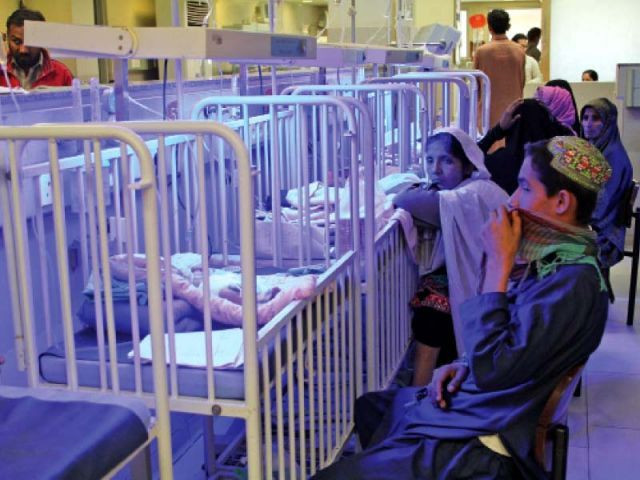Hundreds head to hospitals with upset stomachs
Dr Astori added that owing to Ramazan, some people tend to overeat or at times consume food which has rotted.

PHOTO: EXPRESS
Physicians at the two major public sector hospitals in the capital said they have been receiving over a thousand patients almost every day with complaints of disturbed stomach, vomiting, indigestion and dehydration. Dr Sharif Astori at the Federal Public Services Hospital (Polyclinic) said that on average, they receive around 500 to 600 patients with such complaints in their emergency department while over 1,000 visit their outpatient departments.
PIMA starts construction on eye hospital in Peshawar
He said that the strange thing was that a number of patients who are diabetic or have blood pressure, ulcer and cholesterol are fasting as well, which leads to complications for them.
Dr Astori added that owing to Ramazan, some people tend to overeat or at times consume food which has rotted owing to the intense heat and frequent power cuts – which leads to a loss in refrigeration –lead to frequent complaints of diarrhoea. Alarmingly, he stated, they were even receiving patients early in the morning at around the time for sehri with such complaints.
Dr Waseem Khawaja at the Pakistan Institute of Medical Sciences (Pims) said that as many as 5,000 patients complaining of upset stomachs and dehydration had been registered with the hospital since Ramazan began. The daily average of patients who were visiting the emergency department of the hospital for treatment, he said, stood between 800 to 1,000 patients.
Health experts explained that one of the major reasons for the volume of such complaints was the consumption of contaminated water or water which had not been properly treated at filtration plants.
Published in The Express Tribune, June 5th, 2017.



















COMMENTS
Comments are moderated and generally will be posted if they are on-topic and not abusive.
For more information, please see our Comments FAQ